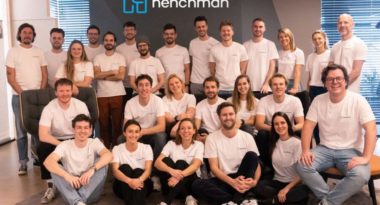- The alliance is open to all universities from around the world and its aim is to support them in transforming their curricula, relying on technology and becoming more global.
- It will develop activities to prepare universities and their teachers to train their students in the competences and skills that the future demands.
The Instituto de Innovación Legal has launched Innovation in Law Studies Alliance (ILSA), an alliance of law and technology faculties whose mission is to support their transformation through the collaboration between its members, the organisation of innovative events and training activities as well as the exchange of good practices on innovation, among other activities. Over 15 universities from various countries worldwide, such as France, Poland, Spain, Colombia, Ecuador, México and South Africa, are already part of the network.
ILSA works with faculty leaders and teachers to help them acquire the new knowledge and skills they need to train their students in areas such as legal innovation, digital transformation, LegalTech, law firm management… In sum, the new knowledge and skillset that will be demanded by future employers.
María Jesús González-Espejo, managing partner of the Instituto de Innovación Legal, vice-president of the European LegalTech Association (ELTA) and promoter of ILSA, explains the envisioning: “we have made a reality of an idea that has been maturing for several years. We have always believed that the transformation of the legal sector had to start with the universities, and these need to commit to open innovation, encourage collaboration with other universities and be more global. ILSA will help them to achieve these goals. Furthermore, we want to bring the best LegalTech applications closer to students, so that when they start working, they can become fundamental pillars of the digital transformation within their organisations”.
To achieve its objectives, ILSA has created an ambitious activity programme that collaborating or associated universities will be able to enjoy, including:
- Events such as webinars by experts in subjects related to new technologies, methodologies, etc. (Access here the agenda of those planned for the coming months), as well as regular meetings for the exchange of good practices in educational innovation and the annual congress.
- Training in LegalTech, offered by the LegalTech companies that are onboard in the project. These include Docxpresso (Spanish document automation application), HighQ (British collaborative platform for working with your team, partners and suppliers), Jeffit (Russian ERP for law firms) or Nymiz (Spanish platform for the anonymisation of legal documents). These companies will be offering training activities for students and teachers to introduce them to the use of their software. The aim is to provide students with the unique skills that will enable them to stand out when searching for a job.
- Access to the collaborative and knowledge management platform, which has been created with HighQ, where members can find documentation on innovation and LegalTech, share news, generate debates, make queries to other members of the network or contact faculties in other countries to organise international activities.
- The ILSA seal, which will be launched in 2022 and will certify each university’s commitment to innovation.
In addition, the Alliance will promote in a second phase, the creation of a community of innovative teachers. This database will be very useful to help universities locate the best experts for each subject they decide to include in their training offer. As Iga Kurowska, ILSA’s representative in France and Poland, has pointed out, “one of the reasons why the much-needed modernisation of Law studies is not progressing, is the difficulty of finding teachers trained to teach these subjects”.
Moreover, the alliance offers support to universities and teachers who share the same concerns about the application of innovation in studies. Thus, relying on the experience of the Instituto de Innovación Legal (a consultancy firm specialised in advising operators in the legal sector on innovation, LegalTech, digital transformation and management) will provide training services for teachers, support in the organisation of events, collaborate in the preparation of training programmes or help in the search and selection of teachers.
ILSA has a strong network of partners in various countries and regions that represent and coordinate activities locally, and this network is projected to progressively expand. Amongst them: Sergio Arellano, president of the Inter-American Institute for Research and Teaching in Human Rights; Paulius Astromskis, partner of exe. legal; Daniel Bermejo, expert in digital projects of the Instituto de Innovación Legal; Mauricio Bermudez, managing partner of Acuña, Acuña y Bermudez; Virginia Carmona, professor of the Department of Private Law and Labour and Social Security Law of the University Rey Juan Carlos of Madrid; Janet Huerta, Editor of Foro Jurídico; Iga Kurowska, founding partner of Verne Legal and Professor of Law at the Université Catholique de Lille; Jackie Nagtegaal, Director of LIPCO – Law for all and founder of the Futures Law Faculty; Alice Namuli, partner and Head of Technology and Innovation at Katende, Ssempebwa & Co. Advocates; Karol Valencia, LegalTech project consultant, Legal Designer and Compliance Officer at Electronic IDentification; and Alexandra Villacís, President of the Association of Latin American Women Lawyers (AMJI) and Director of LATAM projects at the Instituto de Innovación Legal.
For more information on ILSA’s services, please visit its website.
ANNEX I: List of ILSA members already enrolled members:
• UEES Faculty of Law, Politics and Development (Ecuador)
• University Católica de Cuenca (Ecuador)
• University CBKE (Poland)
• University EAFIT (Colombia)
• University del Rosario (Colombia)
• University del Cabo (South Africa)
• Faculté de droit – Université Catholique de Lille (France)
• EDHEC Augmented Law Institute (France)
• University Rey Juan Carlos (Spain)
• University Ecotec (Ecuador)
5 more universities have already confirmed participation and we are waiting for their information.















